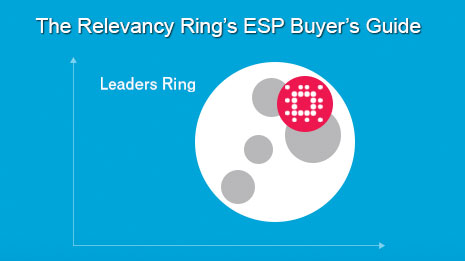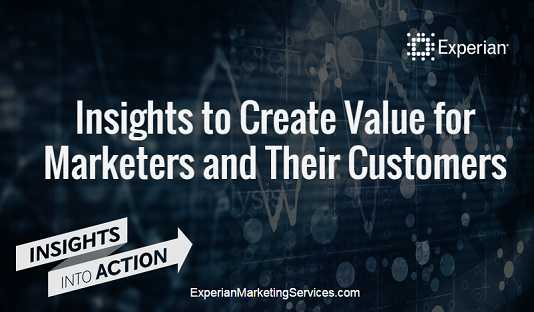All posts by Editor

As more and more finance apps fill the marketplace, consumers have the opportunity to be increasingly selective with their download choices. App availability is widely accessible to smartphone users, and many users are progressively feeling the need to keep a close tab on their finances when on-the-go, whether away from their home base, or simply in their daily routines between bank visits. When they make the decision to bring a financial app into their device, how do security concerns versus the convenience factor play out? A recent study by Experian explored these decision-making evaluations and the motivations behind them, finding that nearly half of consumers currently use financial apps to gain confidence and control over their financial welfare (46 percent).

 Data is one of the most valuable assets in our society and drives many decisions.
For businesses, data can reveal insights about customers and prospects, product trends, areas for investment and efficiency improvements. For consumers, data provides more personalized interactions with brands, including targeted deals or coupons, and geo-location services.
Data is one of the most valuable assets in our society and drives many decisions.
For businesses, data can reveal insights about customers and prospects, product trends, areas for investment and efficiency improvements. For consumers, data provides more personalized interactions with brands, including targeted deals or coupons, and geo-location services.

For more than 40 years, Orange County has been the home of Experian’s North American headquarters. We have strong roots here. And as part of that, Experian and our employees work and volunteer with organizations around the community to help make the OC a better place to live.

Experian’s goal is to help consumers understand and actively engage in their credit life because it plays such an important role in building a secure financial future. Today marked another milestone in this quest. In a positive step for consumers and the U.S. consumer credit industry, Experian (along with the other two nationwide credit bureaus Equifax and TransUnion), announced the National Consumer Assistance Plan (NCAP) – a program that will further enhance our ability to collect complete and accurate consumer information, and provide consumers more transparency and a better experience when interacting with credit bureaus about their credit reports.

 We’re just a few months into a new year and already there are clear signs how the Consumer Financial Protection Bureau (CFPB) plans to further advance its regulatory authority over bank and non-bank entities across the credit ecosystem.
Here is a look at the top three priorities for the CFPB in this space:
We’re just a few months into a new year and already there are clear signs how the Consumer Financial Protection Bureau (CFPB) plans to further advance its regulatory authority over bank and non-bank entities across the credit ecosystem.
Here is a look at the top three priorities for the CFPB in this space:

 For the second year in a row, Experian Marketing Services has been named one of the top email service providers (ESPs) in the marketby The Relevancy Group. The Relevancy Ring — ESP Buyer’s Guide 2015 evaluates and ranks ESP vendors according to the satisfaction of several hundred marketers and the vendor’s ability to meet their challenges and goals through product functionality and innovation. The report also cites Experian Marketing Services for excelling in areas such as integration, omnichannel marketing and production services.
For the second year in a row, Experian Marketing Services has been named one of the top email service providers (ESPs) in the marketby The Relevancy Group. The Relevancy Ring — ESP Buyer’s Guide 2015 evaluates and ranks ESP vendors according to the satisfaction of several hundred marketers and the vendor’s ability to meet their challenges and goals through product functionality and innovation. The report also cites Experian Marketing Services for excelling in areas such as integration, omnichannel marketing and production services.

Launch of AdTruth Resolve simplifies cross-device audience management for marketers Experian Marketing Services today introduced AdTruth Resolve, a new technology designed to simplify the process of recognizing and engaging audiences across all devices and environments. AdTruth Resolve is designed for the multinational marketer that struggles to make smarter, more data-driven business decisions and keep up with today’s mobile-first consumer. AdTruth Resolve provides marketers with the means to reconcile and associate their existing digital identifiers — including cookies, device IDs, IP addresses and more — and then leverage that consolidated intelligence for visibility across devices. AdTruth Resolve represents another milestone in Experian Marketing Services’ long-term strategy to provide marketers with a ubiquitous, consistent and persistent link across all channels as part of the Experian Marketing Suite. Powered by a three-tiered identity-management framework, the Experian Marketing Suite’s Identity Manager gives marketers everything they need to persistently, accurately, effectively and respectfully recognize, resolve and reach consumers across all devices in all digital environments.

 Years ago, when data was the shiny new object, people talked a lot about it being organized into useful information that could drive actionable insights. It sounded great at the time. Unfortunately, at that time (and we’re talking about the late 90s and early 00s) the promise far outstripped the reality. However, in the past five years the responsible collection and usage of data has significantly evolved.
In fact, we see that 95 percent of companies feel driven to turn data into insight to understand their customer needs, find new customers and increase the value of each client. Today, successful businesses are drawing meaningful insights from data to impact almost every aspect of business operations.
Years ago, when data was the shiny new object, people talked a lot about it being organized into useful information that could drive actionable insights. It sounded great at the time. Unfortunately, at that time (and we’re talking about the late 90s and early 00s) the promise far outstripped the reality. However, in the past five years the responsible collection and usage of data has significantly evolved.
In fact, we see that 95 percent of companies feel driven to turn data into insight to understand their customer needs, find new customers and increase the value of each client. Today, successful businesses are drawing meaningful insights from data to impact almost every aspect of business operations.
